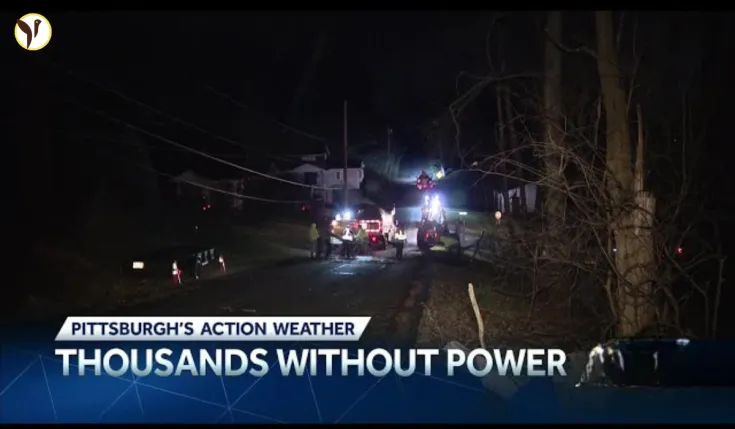The Pittsburgh Storm: A Real Whirlwind
Wow. Just…wow. That storm that hit Pittsburgh? It was something else. Winds over 90 mph – stronger than a lot of tornadoes! Honestly, who saw that coming? Over 200,000 Duquesne Light customers were suddenly plunged into darkness. It felt like watching a slow-motion train wreck, honestly. The whole city was impacted, but Allegheny County really took the brunt of it.
The Aftermath and Duquesne Light's Response
More than 216,000 homes and businesses lost power. It was total chaos. Duquesne Light sprang into action, sending out crews to assess the damage and get the lights back on. They urged everyone to report outages through their website or app – and to stay far, far away from any downed power lines. That’s a big deal – safety first!
But with damage that severe, they warned that getting power restored wasn’t going to be a quick fix. It was going to take time. They also stressed how important it is to report downed power lines immediately, giving their emergency number: (888) 393-7000.
More Than Just Power Outages
This wasn't just about the lights going out. Downed trees blocked roads, a power pole even caught fire – and tragically, there were at least two storm-related deaths. Forest Hills borough declared a state of emergency; the damage was that extensive.
Even the Oakmont Country Club, getting ready for the 2025 U.S. Open, wasn’t spared. Their hospitality tents took a beating. But hey, they're working hard to get everything fixed in time for the tournament.
Looking Ahead: Recovery and Renewable Energy
This whole situation really highlighted how important strong infrastructure and a quick response from utility companies like Duquesne Light are. Their communication was key – getting people to report outages helped them prioritize repairs. The National Weather Service says things should calm down by midweek, bringing cooler, drier weather. Thank goodness!
But it’s not just about fixing things after a disaster; it’s about preventing future problems. Duquesne Light is also big on renewable energy. They’re working with Pittsburgh International Airport on a huge solar project – adding 11,216 new solar panels by 2027! That's going to generate an extra 4.7 megawatts of clean energy, cutting carbon emissions by around 5 million pounds a year. That's pretty impressive.
The airport's microgrid is another example of forward-thinking. It can generate its own power while still connecting to the main grid. It’s a great model for other airports and communities to follow.
Moving Forward
This storm was a harsh reminder of nature's power. But it also showed the vital role utility companies play in keeping our communities safe and powered. Duquesne Light's work – both in responding to immediate crises and investing in long-term sustainable solutions – shows their real commitment to Pittsburgh.
Keep checking Duquesne Light's website and social media for updates on power restoration. Report outages as soon as possible and remember – safety first!






